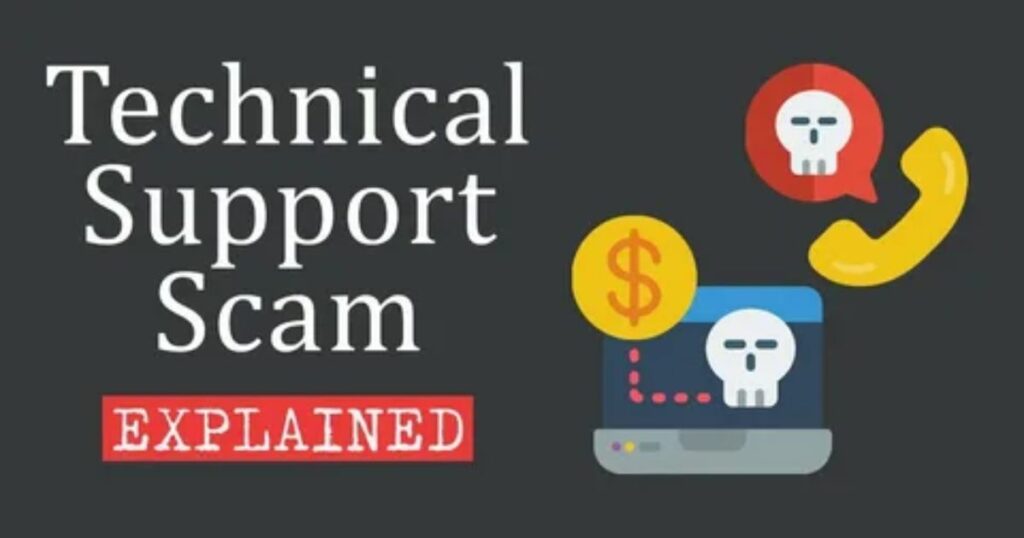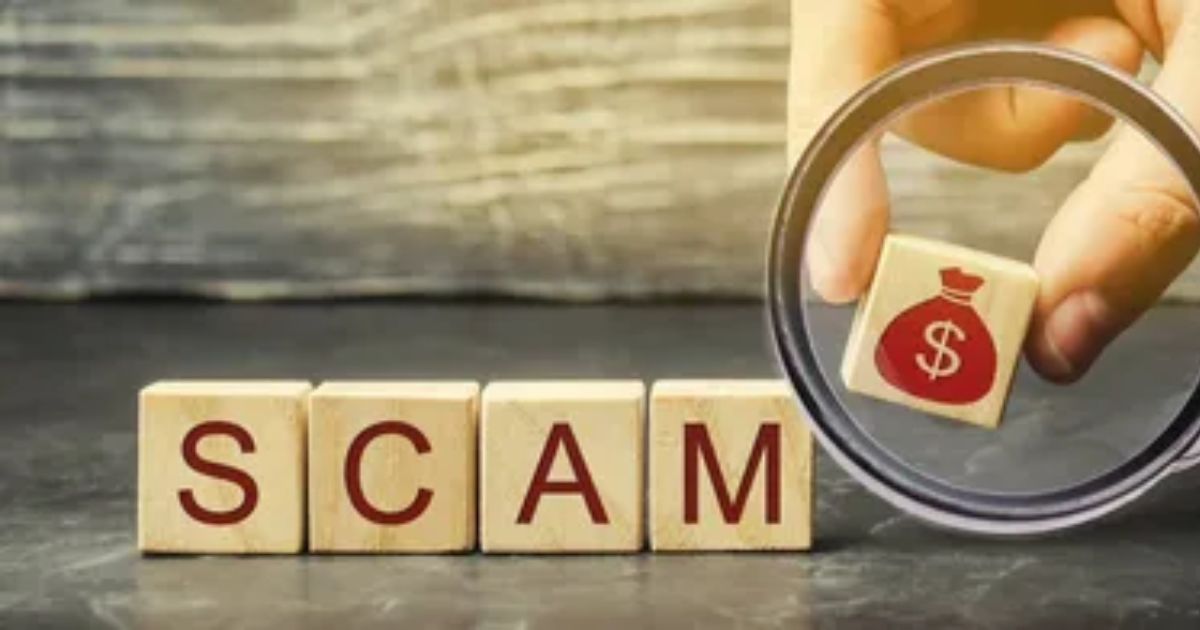In the digital age, phone scams have become an increasingly sophisticated menace targeting unsuspecting Americans. The 419-665-7945 phone number represents a chilling example of how fraudsters manipulate trust and exploit hopes, turning legitimate-sounding sweepstakes into devastating financial scams. Every year, thousands of Americans fall victim to elaborate schemes that promise life-changing prizes but deliver nothing more than financial and emotional devastation.
Caller ID spoofing has transformed these scams into an art form, allowing criminals to masquerade as trusted institutions like Publishers Clearing House (PCH) and trick individuals into believing they’ve won extraordinary rewards. Understanding these tactics isn’t just about protection—it’s about empowering consumers to recognize and resist sophisticated fraudulent activities.
What is Publishers Clearing House (PCH)?
Publishers Clearing House represents a legitimate American marketing company with a fascinating history of prize giveaways. Founded in 1953, PCH began as a magazine subscription service and gradually evolved into a multi-dimensional marketing platform renowned for its spectacular sweepstakes. The company’s Prize Patrol became a cultural phenomenon, surprising winners with oversized checks and cameras rolling, creating moments of pure excitement and disbelief.
Despite its legitimate operations, PCH’s popularity has inadvertently made it a prime target for scammers. Criminals exploit the company’s well-known brand, creating elaborate schemes that mimic PCH’s communication style. These fraudulent attempts prey on people’s dreams of sudden wealth, using the trusted PCH name as a psychological weapon to lower victims’ defenses and extract personal information.
Read This Blog: Drive Social Media Pyramid Scheme Awareness
The Danger of PCH-Related Scams
PCH scams represent a sophisticated form of psychological manipulation targeting vulnerable populations. Scammers meticulously craft scenarios that trigger emotional responses, making victims momentarily suspend critical thinking. By creating a sense of urgent excitement, these criminals engineer situations where individuals are more likely to share sensitive personal and financial information.
The economic and emotional toll of these scams extends far beyond immediate financial loss. Victims often experience profound psychological trauma, including:
- Embarrassment and shame
- Diminished self-confidence
- Long-term trust issues
- Potential financial devastation
Understanding the 419-665-7945 Scam

The 419-665-7945 phone number, originating from Northwest Ohio, has become synonymous with fraudulent activities. While area codes traditionally indicated geographic location, modern phone scams leverage technological capabilities to mask their true origins. Scammers using this number employ advanced techniques to appear legitimate, including:
- Sophisticated voice scripts
- Simulated official-sounding backgrounds
- Pressure tactics designed to overwhelm rational decision-making
Technological advancements have transformed these scams from simple cold calls into complex psychological operations. Scammers now use robocalls, voice manipulation software, and extensive personal data databases to create highly personalized and convincing fraudulent interactions.
Read This Blog: SLO Downsell Conversion Rate
How the Scam Works
The 419-665-7945 scam begins with a calculated, seemingly innocent phone call designed to trigger immediate emotional response. Scammers expertly craft a narrative of unexpected wealth, using a carefully rehearsed script that sounds convincingly official. They strategically introduce a “prize” just large enough to capture the victim’s imagination, creating an atmosphere of excitement and potential life-changing opportunity. The caller’s tone is deliberately friendly and authoritative.
Psychological Manipulation Stages
- Initial Contact: Unexpected call claiming extraordinary prize
- Excitement Generation: Creating false sense of imminent wealth
- Information Extraction: Gradually requesting personal details
- Financial Exploitation: Demanding “processing fees” or personal financial information
Scammers leveraging the 419-665-7945 number follow a calculated script designed to overwhelm victims’ critical thinking. They create artificial time pressure, simulate official communication channels, and exploit human vulnerabilities like hope and financial desperation.
Key Defense Strategies
- Never pay to claim a prize
- Verify all communications independently
- Contact PCH through official channels
- Protect personal information
Fraud prevention requires a multi-layered approach combining technological awareness, personal vigilance, and proactive education. Consumers must develop sophisticated scam detection skills that go beyond simple skepticism, understanding the psychological mechanisms fraudsters employ.
Immediate Action Steps
- Stop all communication
- Document interaction details
- Report to Federal Trade Commission (FTC)
- Contact local law enforcement
- Monitor financial accounts
The aftermath of a scam requires swift, strategic action. Victims should prioritize protecting their financial and personal information, understanding that quick intervention can mitigate potential long-term damage from identity theft.
Read This Blog: Jiniphee OnlyFans Leak
Technology’s Role in Modern Scams

In today’s interconnected world, technology has dramatically reshaped the landscape of phone scams. Advanced digital tools have empowered criminals to create increasingly sophisticated fraudulent activities that exploit technological vulnerabilities. Scammers now leverage complex algorithms, data mining techniques, and artificial intelligence to craft highly personalized and convincing fraudulent schemes that can bypass traditional security measures.
Modern caller ID spoofing technologies allow fraudsters to manipulate communication platforms with unprecedented precision. By mimicking legitimate phone numbers and organizational identities, these digital predators can seamlessly penetrate personal and professional communication barriers, making their scam detection increasingly challenging for unsuspecting victims.
Emerging Technological Threat Vectors
Robocalls and automated calling systems represent a significant technological advancement in financial scams. These automated platforms enable criminals to simultaneously target thousands of potential victims, using sophisticated voice recognition and machine learning algorithms to adapt their scripts based on real-time interactions. The scalability and efficiency of these technologies have transformed traditional phone scamming into a highly systematic and data-driven criminal enterprise.
Artificial intelligence and machine learning technologies have further enhanced scammers’ ability to create convincing narratives. By analyzing vast databases of personal information, these tools help fraudsters develop hyper-personalized approaches that exploit individual psychological vulnerabilities, making their phishing emails and phone scams increasingly difficult to distinguish from legitimate communications.
Data Aggregation and Personal Information Exploitation
The proliferation of digital platforms has created unprecedented opportunities for identity theft. Cybercriminals can now aggregate personal information from multiple sources, including social media, online databases, and data breaches, to create comprehensive profiles of potential victims. This information allows them to craft highly targeted and believable scam scenarios that exploit specific personal and financial contexts.
Advanced encryption technologies and anonymous communication platforms further complicate fraud prevention efforts. Scammers can now operate across international boundaries, using virtual private networks (VPNs) and cryptocurrency to obscure their identities and financial trails, making traditional law enforcement investigations exponentially more challenging.
Technological Countermeasures and Defense Strategies
Consumer protection agencies and technology companies are developing increasingly sophisticated tools to combat digital fraud. Machine learning algorithms can now analyze communication patterns to identify potential scam indicators, while advanced verification technologies provide multi-factor authentication methods that significantly reduce the risk of unauthorized access.
Blockchain and decentralized verification technologies offer promising solutions for creating more secure communication ecosystems. By implementing transparent, immutable record-keeping systems, these technologies can help create more robust frameworks for verifying individual identities and detecting potentially fraudulent activities across various digital platforms.
Psychological Manipulation through Technology
Technology has transformed scam detection from a reactive to a proactive discipline. Digital platforms now enable more nuanced understanding of psychological manipulation techniques, allowing researchers and law enforcement to develop more comprehensive strategies for identifying and preventing sophisticated fraudulent schemes.
The integration of behavioral analytics and predictive modeling provides unprecedented insights into the psychological mechanisms underlying successful scams. By understanding how technological tools can be leveraged to exploit human cognitive biases, experts can develop more effective educational and preventative resources.
Emerging Technological Threats
- Advanced caller ID spoofing
- AI-powered voice simulation
- Large-scale personal data aggregation
- Sophisticated phishing techniques
Technology has become a double-edged sword in consumer protection. While it enables more complex scams, it simultaneously provides tools for detection, prevention, and legal intervention.
Legal Actions and Industry Response

The Federal Trade Commission (FTC) has emerged as a pivotal force in confronting phone scams like the 419-665-7945 fraud. Federal regulators have developed sophisticated strategies to track, investigate, and dismantle complex scam networks. By leveraging advanced technological tools and inter-agency collaboration, they create comprehensive frameworks that target not just individual perpetrators but the entire infrastructure supporting fraudulent operations. These efforts represent a multi-dimensional approach to dismantling systematic consumer protection threats.
Government agencies recognize that modern fraudulent activities require dynamic, adaptive response mechanisms. They continuously update legal frameworks, develop new investigative technologies, and create collaborative networks between law enforcement, technology companies, and financial institutions. This holistic strategy allows for more effective identification, prevention, and prosecution of sophisticated scam operations that exploit vulnerable populations.
Technological Countermeasures in Fraud Prevention
The technological landscape of scam detection has undergone remarkable transformation in recent years. Industry leaders have developed cutting-edge algorithms and machine learning models capable of identifying potential phone scams with unprecedented accuracy. These systems analyze communication patterns, recognize suspicious caller behaviors, and create real-time alert mechanisms that can interrupt fraudulent interactions before significant damage occurs.
Technology companies are investing heavily in developing proactive fraud prevention tools. By integrating advanced caller ID spoofing detection, behavioral analysis algorithms, and automated blocking systems, they create multi-layered defense mechanisms. These technological solutions not only protect individual consumers but also contribute valuable data to broader law enforcement and regulatory efforts against financial scams.
Collaborative Industry Initiatives
Publishers Clearing House (PCH) and other targeted organizations have taken proactive stances in combating fraudulent activities targeting their brands. They’ve developed comprehensive fraud awareness campaigns that educate consumers about legitimate communication channels, warning signs, and protective strategies. These initiatives go beyond traditional public relations, serving as critical educational resources that empower potential victims to recognize and resist sophisticated scam attempts.
Industry collaborations have become increasingly sophisticated, with companies sharing threat intelligence, developing joint defense strategies, and supporting regulatory efforts. By creating unified responses to scam detection challenges, these collaborative approaches provide a more robust defense against evolving fraudulent techniques. Such coordinated efforts demonstrate the potential for private sector engagement in protecting consumer interests.
Legislative and Regulatory Reforms
Lawmakers in the United States have recognized the growing threat of sophisticated phone scams and are developing more comprehensive legislative responses. Recent legal reforms have increased penalties for fraudulent activities, expanded investigative powers for agencies like the FTC, and created more stringent reporting requirements for telecommunications companies. These legislative actions aim to create a more challenging environment for scammers to operate.
The legal landscape continues to evolve, with proposed regulations targeting technological aspects of fraudulent activities. Proposed bills seek to mandate advanced caller verification technologies, impose stricter penalties for caller ID spoofing, and create more robust frameworks for international cooperation in investigating cross-border scam operations. These forward-looking approaches demonstrate a commitment to adapting legal structures to technological challenges.
Empowering Consumer Protection
Consumer education has become a critical component of industry and governmental responses to financial scams. Agencies like the FTC have developed comprehensive resources, including online training modules, interactive websites, and community outreach programs designed to enhance public awareness. These initiatives focus on teaching practical skills for recognizing, avoiding, and reporting potential scams.
By providing accessible, engaging educational content, these programs aim to transform potential victims into informed, empowered consumers. The approach goes beyond simple warning strategies, offering practical tools for understanding the psychological mechanisms of scams, recognizing red flags, and taking proactive protective measures. This educational approach represents a holistic strategy in combating fraudulent activities.
Collaborative Fraud Mitigation
- FTC enforcement actions
- Industry-wide awareness campaigns
- Technological countermeasures
- Legislative reforms
Law enforcement actions represent a critical component of combating phone fraud. Agencies increasingly collaborate with technology companies to develop proactive detection and prevention mechanisms.
Frequently Asked Questions
How can I identify a PCH scam?
Legitimate PCH prizes never require upfront payments. The Prize Patrol surprises winners in person, and smaller prizes are communicated via mail.
What should I do if I receive a call from 419-665-7945?
Immediately hang up, do not engage, and never share personal information. Report the number to relevant authorities.
How common are PCH scams in the United States?
PCH scams are alarmingly prevalent. The Federal Trade Commission (FTC) receives thousands of reports annually, with victims losing millions of dollars each year to fraudulent prize-winning schemes.
Can scammers actually face legal consequences for using numbers like 419-665-7945?
Yes, law enforcement can and do prosecute phone scammers. The FTC and local authorities actively investigate and pursue criminal charges against individuals and organizations involved in fraudulent activities.
Are elderly individuals more vulnerable to these phone scams?
Seniors are often targeted more frequently due to potential cognitive decline and social isolation. Scammers specifically design manipulative scripts to exploit their vulnerabilities, making consumer protection efforts crucial for this demographic.
Conclusion
Fraud awareness represents our most potent weapon against sophisticated scams. By understanding the mechanisms of fraudulent activities, consumers can transform from potential victims to informed defenders. The 419-665-7945 scam serves as a critical reminder that vigilance, education, and skepticism are essential in protecting our financial and personal well-being.
Stay informed, stay skeptical, and remember: if an offer sounds too good to be true, it probably is.

Admin Account for ZenithFlares.com—offering insightful and up-to-date content across a range of popular topics, designed to keep readers informed, entertained, and engaged daily.
